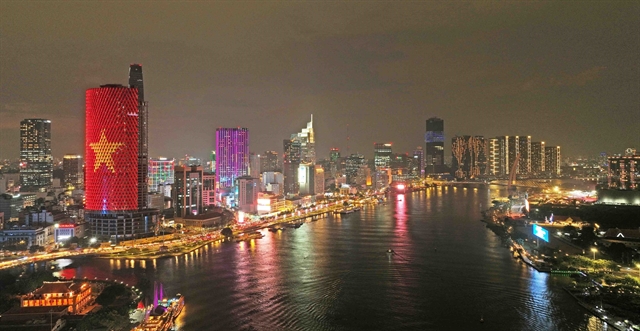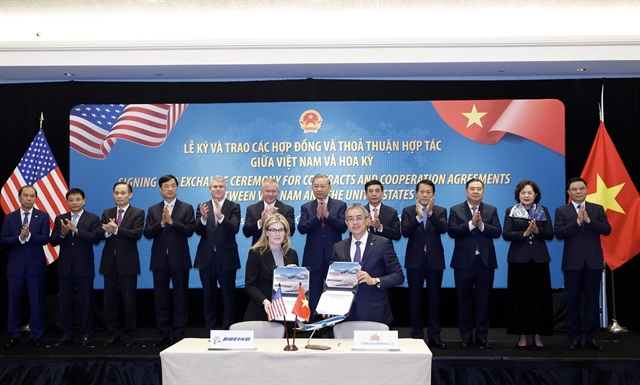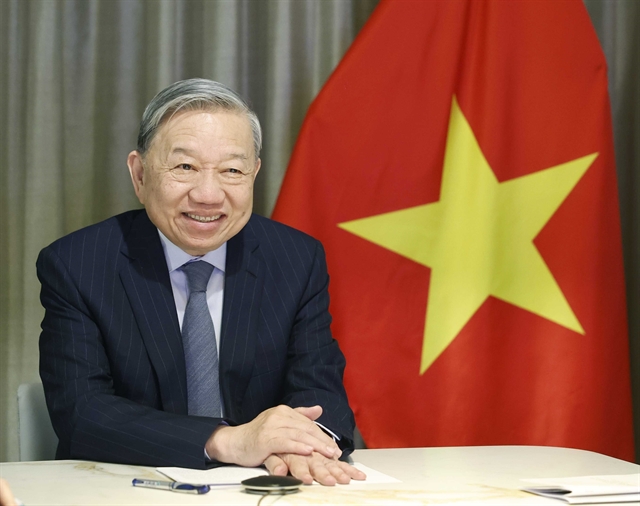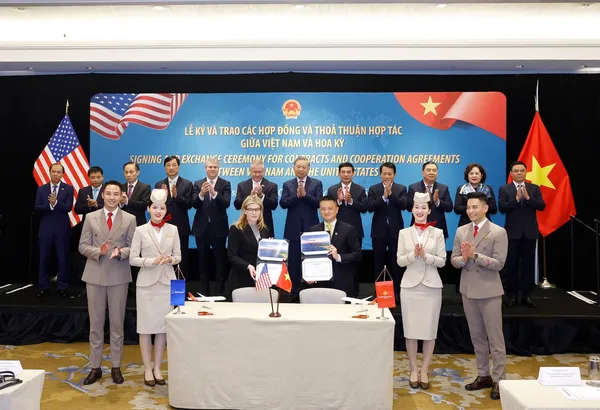 Economy
Economy

 |
| A view of the bustling HCM City at night. The city contributes about one-fifth of the country's GDP. — VNA/VNS Photo |
Việt Nam is poised to reach a historic turning point, described by Party General Secretary Tô Lâm as an "era of the nation's rise". But what exactly does this mean, and what gives Việt Nam confidence in its ambitious vision? Professor Dr. Tạ Ngọc Tấn, Standing Vice Chairman of the Central Theoretical Council offered this response.
What characterises Việt Nam's 'new era'?
In his recent articles and speeches, the General Secretary of the Communist Party of Vietnam, Tô Lâm, has clearly outlined three key and overarching characteristics of the new era that Việt Nam is entering, starting from the 14th National Party Congress to be held in early 2026, calling it "the era of the nation's rise".
First, Việt Nam aims for robust growth as a prosperous socialist-oriented nation under the Communist Party’s leadership. The country intends to achieve rapid and sustainable economic development, strengthening its economic power and capacity.
Second, it emphasises improving people's well-being, ensuring that every citizen enjoys a prosperous, democratic, equitable, and culturally advanced society. Rooted in President Hồ Chí Minh’s legacy, this aspiration encapsulates the nation's enduring pursuit of independence, freedom and happiness.
Third, Việt Nam commits to playing a growing international role, contributing actively to global peace, stability and development, thereby confidently asserting itself as a key player on the world stage.
What gives Việt Nam confidence in stepping firmly into this new era?
Việt Nam’s confidence in entering this new era rests firmly on several interconnected foundations:
• Theoretical clarity and strategic direction: The Communist Party of Vietnam has constructed a robust theoretical foundation rooted in Marxism-Leninism and Hồ Chí Minh’s Thought, adapted creatively to Vietnamese realities. Key guiding documents, such as the Platform for National Construction during the Transitional Period toward Socialism, provide clear blueprints for Việt Nam’s socialist-oriented future, identifying explicit targets including economic prosperity, democracy and social equity.
• Achievements from four decades of Đổi Mới (Renewal): Việt Nam’s Đổi Mới, launched in the mid-1980s, has produced significant results, underpinning optimism about the future.
- Economic strength: Việt Nam’s GDP grew dramatically, from poverty and dependence on imported food in the 1980s to becoming a US$430 billion economy in 2023, ranked among the world’s 40 largest economies. It has also emerged as a leading global exporter of agricultural products and manufactured goods.
- Social progress and human development: The poverty rate fell from 58 per cent in 1993 to below two per cent today. The Human Development Index (HDI) has reached high levels among developing middle-income countries. Improvements in education, healthcare and overall living conditions demonstrate substantial progress toward human well-being and social equity.
- Security, stability and diplomatic achievements: Việt Nam successfully safeguarded its sovereignty and stability, significantly raising its international profile. It now maintains diplomatic relations with 194 countries, including comprehensive strategic partnerships with major global powers, placing it firmly on the global diplomatic map.
• Global context and technological opportunities: Việt Nam enters this new era amid a rapidly changing, multipolar world characterised by both uncertainties and interdependencies.
The country is well-placed to leverage international economic integration (including numerous free trade agreements), global cooperation on key challenges and opportunities arising from the Fourth Industrial Revolution, allowing it to accelerate economic modernisation and competitiveness.
• Strengthening of Party leadership and political stability: Under the Party’s leadership, substantial progress has been made in improving governance, strengthening anti-corruption measures and enhancing organisational effectiveness.
From its founding with just 565 Party members, the Communist Party of Vietnam has grown to over 5.4 million members, reflecting increasing public trust and expanding organisational strength.
The development of the socialist rule-of-law state is another cornerstone of its readiness for the new era. The Government’s growing professionalism, accountability, and efficiency in management have significantly improved its capacity to implement policies and promote development across various sectors.
• Solid internal resources for future growth: Việt Nam has established crucial internal strengths to ensure sustainable long-term growth:
- Science and technology: Significant strides in innovation saw Việt Nam ranked 46th globally in the 2023 Global Innovation Index, reflecting the nation's readiness to harness new technologies, including AI and cloud computing, for future growth.
- Human capital: With a population surpassing 100 million, including a skilled workforce developed through improved education and international collaboration, Việt Nam possesses abundant human resources to drive economic and social progress.
- Financial capability: Substantial financial resources, from domestic savings (around $540 billion deposited in banks), private-sector investment, FDI inflows and remittances underline Việt Nam’s capacity to fund ambitious development projects and initiatives.
- Political and social stability: Việt Nam’s most critical asset is its enduring political and social stability, providing a secure environment attractive to investors and ensuring the continuity of reform processes and economic policies.
Việt Nam's 'new era of rise' represents an ambitious yet realistic vision backed by decades of successful reforms, clear strategic guidance, robust internal resources and an advantageous international position.
With these factors combined, Việt Nam confidently steps into its next chapter, aspiring toward sustainable growth, international influence and a society that lives up to the founding ideals articulated by President Hồ Chí Minh nearly a century ago: independence, freedom and happiness for all its citizens. — VNS




